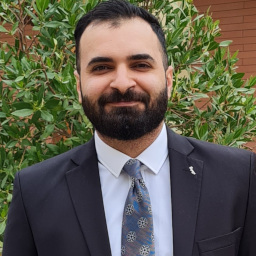Iraq
Publications
Situation and Priorities
Social protection situation
The social protection landscape in Iraq is characterised by relative fragmentation and ineffectiveness in addressing the needs of the poor and the vulnerable.
The social security system is composed of one for public sector workers and one for private sector workers. The public sector fund achieves high coverage of the almost 50% of the labour force working in the sector, but benefit levels are set very high and are widely considered financially unsustainable. The fund for private sector workers covers between 13% and 16% of the private-sector workforce and provides a limited range of benefits with employers remaining liable for maternity, work injury and disability, and no unemployment benefit.
There are two main social assistance programmes in Iraq, namely, the Public Distribution System (PDS), which provides food rations to almost all households in the country, and the Social Safety Net, a poverty-targeted conditional cash transfer which covers some 1.2 million Iraqi households. Both programmes face targeting challenges and coordination between them (and with the social security system) is considered weak.
While the combination of contributory and tax financed social protection scheme put a significant burden on the government budget, their impact is inadequate to the developmental objectives of protecting people during life and work transitions, promoting formalization and labour mobility and fostering a shift to higher productivity, human-capital-led inclusive growth model.
COVID-19 and other crises
The COVID-19 pandemic has had severe impacts on the Iraqi economy and the welfare of the Iraqi population. Recent estimates suggest that the pandemic and related containment measures led to an increase in poverty of 11.7%, which translates to 4.5 million more people living below the poverty line. In turn, the impact on workers has been severe, with a rapid assessment identifying that that only 23% of respondents were “working as usual” – while among the remaining respondents, 35% were working reduced hours, a quarter of respondents had been permanently laid off, and 15% were temporarily laid-off.
The government responded to the socio-economic impacts of the pandemic by providing top-ups to Social Safety Net recipients and by launching the Minha emergency grant – a cash transfer implemented relatively independently from existing social assistance programmes. The absence of unemployment benefits in the social security system has meant that the large number workers affected by the pandemic have received no income support.
Government and social partner priorities
The reform of the social protection system is one of the pillars of the Government of Iraq’s Poverty Reduction Strategy 2018-2022, with a key focus on improving targeting and strengthening effectiveness of key social assistance programmes. The Government is also in the process of reforming the social security fund for private sector workers, with a Draft Social Security Law under preparation which will extend the legal coverage of the fund to self-employed and informal workers, and will establish new short-term benefits for registered workers, including an unemployment benefits.
Both employers and worker’s organisations have been closely engaged in the Draft Law:
- For employers the priority is to identify a sustainable and affordable system where employers are not solely liable for maternity and work injury, where government contributes to social security payments, and where the fiscal burden of public sector social security is reduced.
- For workers’ organisations, the priority is to reform the private sector system in line with ILO standards to expand coverage to workers in the informal economy, and enhance comprehensiveness, sustainability, and adequacy.
ILO Projects and Programmes
-
Social Protection Programme, Leveraging Effective Response and Accelerating Reform
01.04.2021 - 30.04.2025 USD 7,754,380 European Union
Results
-
Iraq has fullfilled the national process for ratifying C102
31.12.2021 IRQ180
Funding gaps / Support the ILO
The ILO is supporting the Government of Iraq to achieve these and other objectives, including as part of the EU-funded Social Protection Programme: Leveraging Effective Response and Accelerating Reform implemented in partnership with UNICEF and the WFP. Here, the ILO aims to support the Government of Iraq to extend coverage and provision of social security to workers, to ensure the financial sustainability of the private sector fund, and to strengthen coordination and coherence between social insurance and social assistance schemes, in line with the Social Security (Minimum Standards) Convention 102 and Recommendation 202 on Social Protection Floors.
Workspaces
ILO Experts

Luca Pellerano
Wisam Al-Behadili
Igor Bosc
